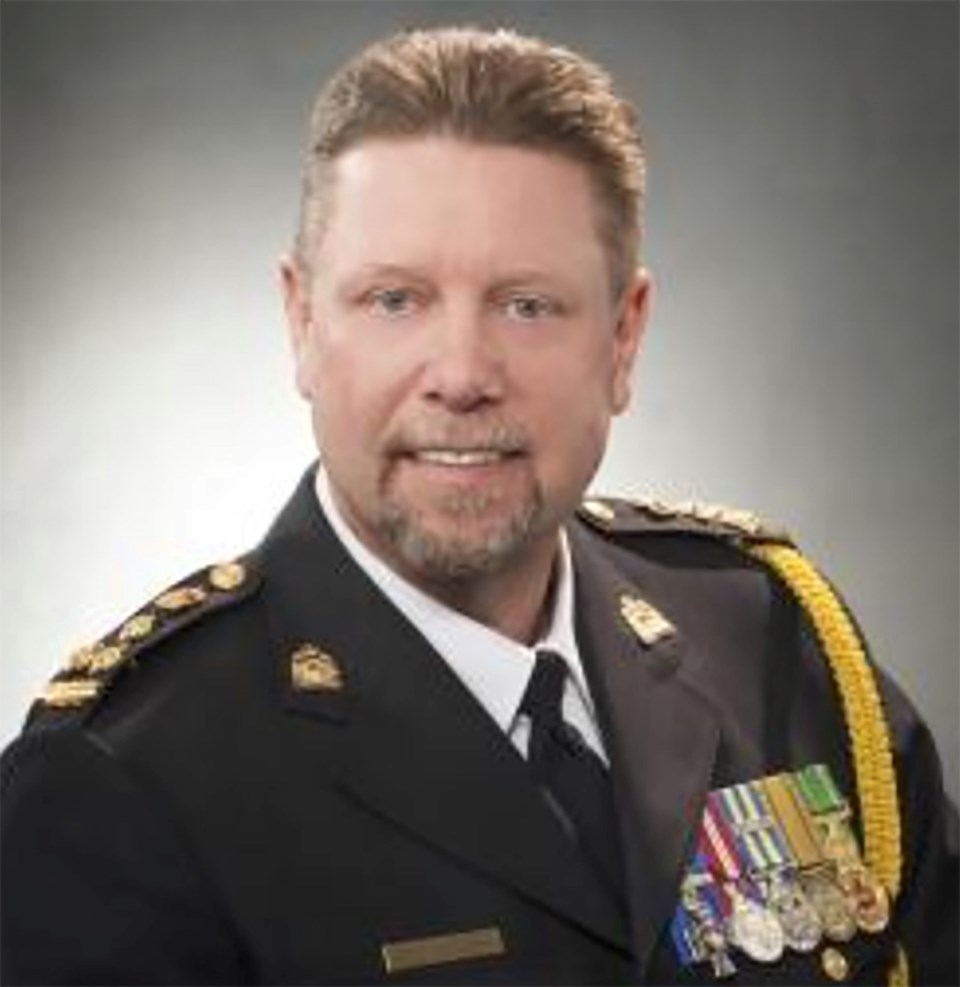SASKATOON – After an almost four-decade career in policing, Saskatoon Police Service (SPS) Chief Troy Cooper is retiring.
On Oct. 19, during a news conference by the Saskatoon Board of Police Commissioners, Cooper announced he will retire Jan. 16, 2024.
“As we move into 2024 and begin engagement for our next strategic plan, it is the most appropriate time for me to step aside and let new leadership hear directly from the community,” said Cooper.
“The Service is in a strong position as an industry leader, and I am confident in the administrative team that is now in place,” he added. “It has been my honour to serve with members of the Saskatoon Police Service for the past six years and my pleasure to work with such a committed and community minded Board of Police Commissioners.”
Earlier this year, Chief Cooper had a medical emergency.
In April, SPS told media that Cooper was taken to hospital for a medical emergency and was recovering at home.
In March, Cooper signed a contract extension with SPS until Dec. 31, 2025.
In January 2018, Cooper was appointed police chief at SPS. He had served 31 years with the Prince Albert Police Service, with the last six as police chief.
SPS Police Commission Chair Jo Custead said the board regretfully accepted Cooper’s decision to retire and thanked him for his years of service not only as chief of SPS, but for his 36 plus year career in policing.
“The Board hired Chief Cooper based on his extensive policing experience but also for his strong reputation as a community leader, and his strength in building relationships to address some of the root causes of crime,” said Custead. “We are confident in saying he will be greatly missed not only by the Board, but by the many organizations he has been partnering with over the years to achieve the Board’s mission of creating a culture of community safety in Saskatoon.”
The Board said Cooper’s most notable accomplishment has been his work in community policing.
He formed and strengthened dozens of partnerships with organizations focused on health care, social services, education, and community safety. The development of an Alternative Measures Unit and a Hate Crimes Unit are operational examples of this commitment. He improved engagement with the Indigenous community, developing an Indigenous Women, Girls, and Two Spirit Advisory Circle to gather input on current police policy and practices. He also worked closely with the Office of the Treaty Commissioner to map a way forward to reconciliation.
While police chief at SPS, Cooper steered them through periods of change including the legalization of marijuana, the COVID-19 pandemic, and calls for police reform, all of which resulted in structural changes for SPS. He implemented programs that support community safety while reducing crime in more cost efficient and effective ways, including the new Alternative Response Officer Program, Community Mobilization Unit, and the Body Worn Camera Program.
Cooper also improved accountability through the introduction of a more robust strategic planning process that includes annual business plan reporting. He led SPS through several years of the lowest levels of Crime Severity since it was first measured in 1998 by Statistics Canada.
“I am so grateful to Chief Cooper for all of the years he has given to our Service and our community,” said City of Saskatoon Mayor and Police Board Commissioner Charlie Clark.
“I have learned a lot from him as a leader. Chief Cooper has been able to do tremendous work in strengthening and modernizing the Saskatoon Police Service while also deepening community relationships in meaningful ways. These attributes have been instrumental through many challenging situations in these turbulent times.”
In the coming weeks, the Board will announce the process it will use to replace Cooper, and to identify an Acting Police Chief who will serve between Cooper’s last day of work and the date a new Chief will begin work.
Don't count on social media to deliver your local news to you.
Click here to bookmark SASKTODAY.ca's Crime, Cops and Court section.


